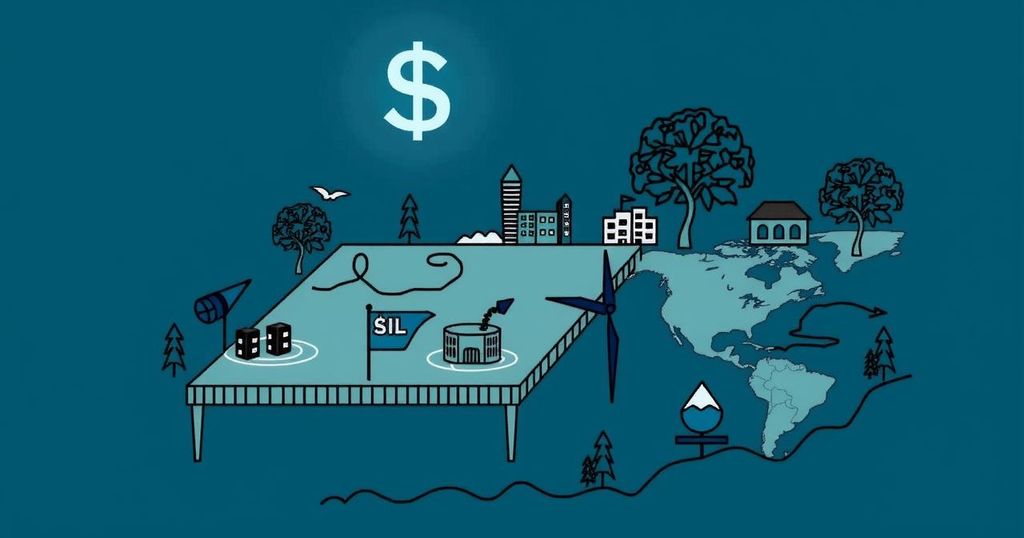Negotiations Intensify at UN Climate Talks as Developing Nations Demand Increased Funding

At the UN climate talks in Baku, tensions escalated as developing nations rejected a proposed USD 300 billion annual financial package, arguing it fails to meet their needs of USD 1.3 trillion. Frustration grew as negotiators accused wealthier nations of undermining developing countries’ positions. The urgency for a fair agreement intensifies as representatives face travel schedules and dwindling reserves, with concerns about global fossil fuel commitment backsliding.
In Baku, Azerbaijan, tensions escalated among negotiators as they attempted to finalize an agreement concerning financing for climate action aimed at supporting developing nations. Despite efforts, many developing countries, particularly those in Africa and small island states, strongly rejected a rough draft proposing a substantial allocation of USD 300 billion annually by 2035, arguing it fell significantly short of their actual needs of approximately USD 1.3 trillion. Amidst growing frustrations, negotiators expressed concerns about tactics employed by wealthier nations, which they characterized as attempts to diminish their bargaining power, risking an inadequate deal for vulnerable countries.
Juan Carlos Monterrey Gomez, Panama’s chief negotiator, shared his frustrations, emphasizing the unequal dynamics as poorer nations faced pressure. “Every minute that passes we are going to just keep getting weaker and weaker and weaker,” he stated, underscoring the urgency as representatives contended with travel schedules and dwindling energy levels. Mohamed Adow from Power Shift Africa warned that failure to maintain firm positions by developing countries could lead to compromises that would not address their essential climate financing needs.
Developing nations reaffirmed their demands for extensive financial support, highlighting their dependence on external assistance to respond to climate-related challenges such as droughts, floods, and rising global temperatures. Despite a commitment from wealthy nations made in Paris in 2015, many negotiators expressed doubts regarding the ability to reach an agreeable figure that reflects the necessary financial requirements. Eamon Ryan, Ireland’s environment minister, indicated that revisions to proposed financial targets were anticipated but that substantial backing would be required from multiple sources.
Concerns raised during the negotiations included potential regression in prior commitments to mitigate fossil fuel reliance. German foreign minister Annalena Baerbock lamented the behaviors of fossil fuel-rich nations, asserting that these dynamics threaten progress toward maintaining global temperature increases within safe limits. As talks progressed, Alden Meyer, an expert from E3G, articulated the precarious state of discussions and the urgency of reaching a consensus before more representatives departed from Baku.
The ongoing UN climate talks are critical for establishing financial pledges aimed at assisting developing nations in managing and adapting to climate change. Historical commitments from wealthier nations have consistently fallen short of actual financial needs, creating a significant gap in climate resilience financing. The current session has highlighted tensions between richer nations and those more vulnerable to climate impacts as they negotiate critical financial aid packages that align with the urgency and severity of climate change effects experienced by poorer countries.
In conclusion, the negotiations in Baku underscore the urgent need for a balanced and adequate financial agreement to address the pressing climate challenges faced by developing nations. As the clock runs down, the potential for an outcome that meets the substantial demands of vulnerable countries remains uncertain, necessitating immediate collective action from all parties involved to foster equitable solutions for climate finance.
Original Source: www.theweek.in








